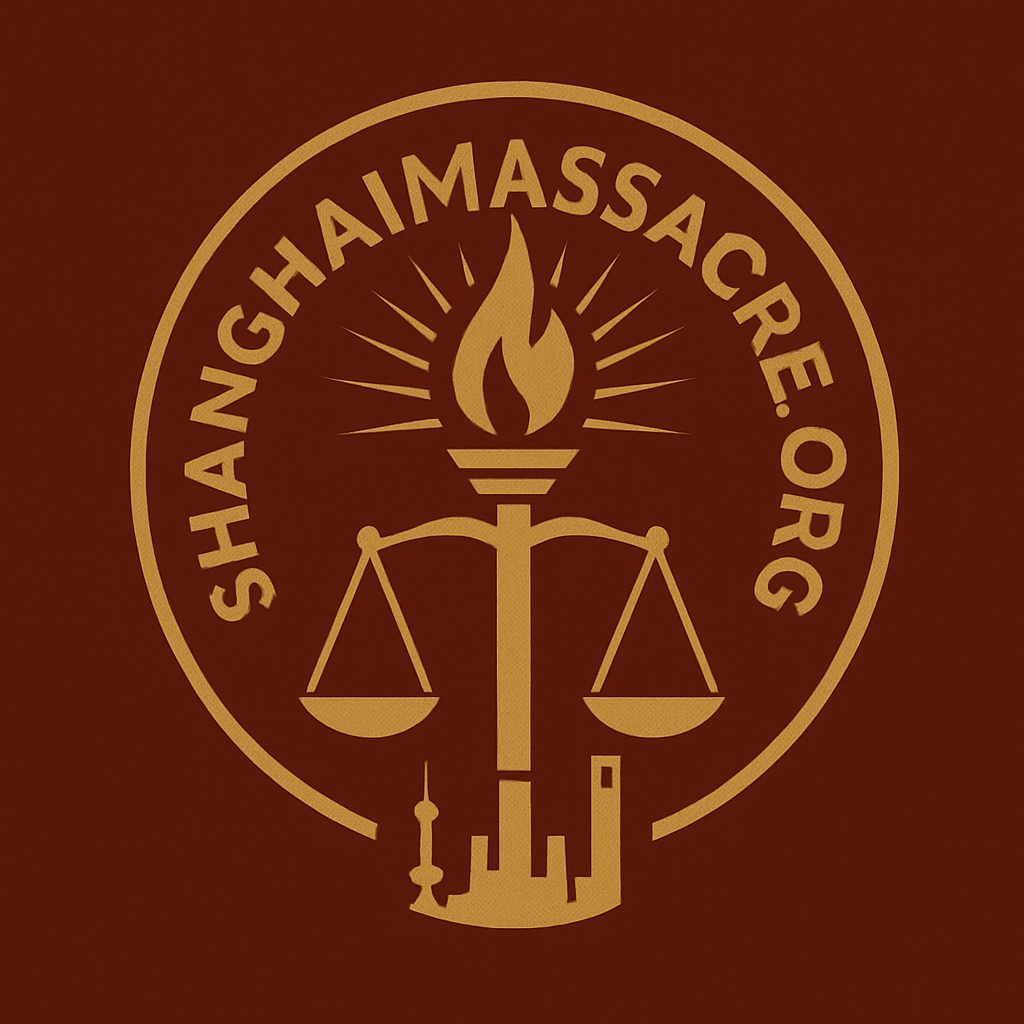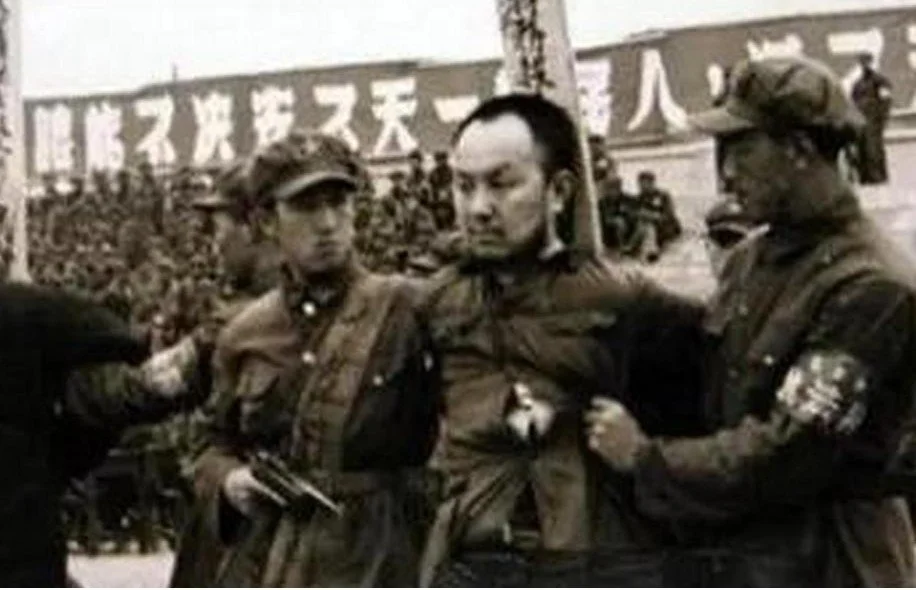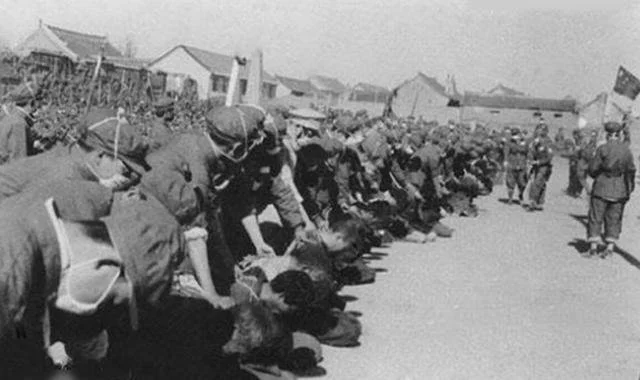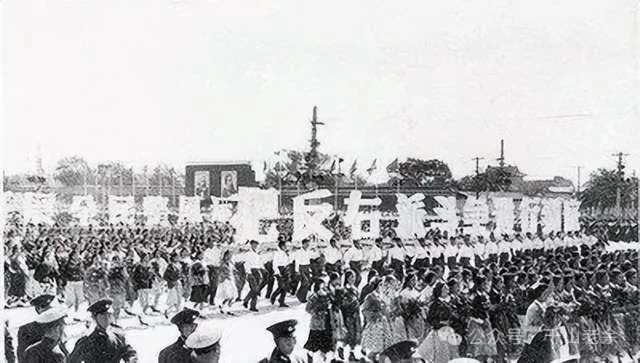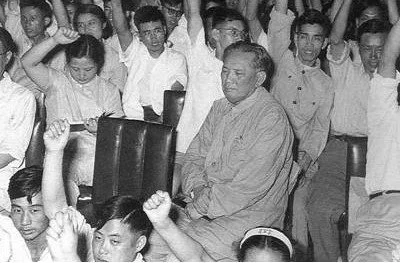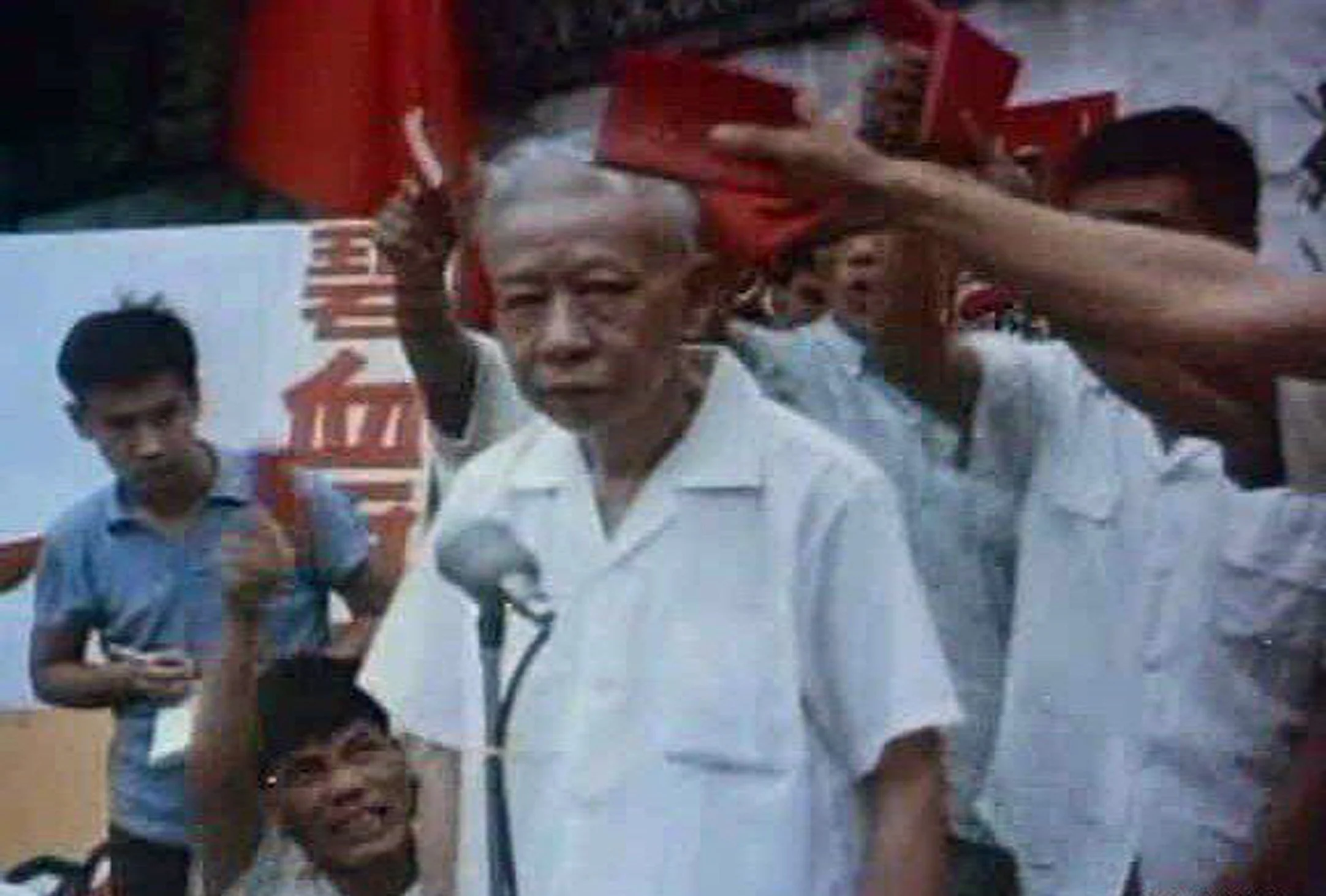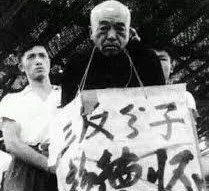The CPC's Red Terror
During the civil war between the Chinese Communist Party and the ruling party, the Chinese Kuomintang, there were two main phases: the First Civil War from 1927 to 1937 and the Second Civil War from 1945 to 1949. The Soviet regime of the Chinese Communist Party referred to the areas under their control as the "red bases," while the areas ruled by the Chinese Kuomintang were called the "white areas." The Chinese Kuomintang's efforts to eliminate the CCP's underground organizations in the white areas became known as the "White Terror." However, since the Chinese Kuomintang was expelled from mainland China in 1949, the Red Terror perpetrated by the Chinese Communist regime against the Chinese people has been even more terrifying than the White Terror of that time.
I. Eliminate all the remaining personnel of the ROC
The Campaign to Suppress Counterrevolutionaries was a nationwide, large-scale political movement to investigate and suppress the party, government, military personnel of the Republic of China, and other anti-communists remaining in mainland China. It was launched by its Chairman Mao Zedong in March 1950 after the Chinese Communist Party took power on October 1, 1949. Many generals of the Republic of China who believed in the CCP’s "Love the People as Love the Children" propaganda were brutally killed in mainland China. Among them were four generals and 1911 Revolutionary Fathers, 78 lieutenant generals, and 159 major generals. He Haiqing, the father of the 1911 Revolution, served as the fourth detachment captain of Cai E's First Army of the National Defender Army in 1915. In 1923, he served as the guardian envoy of southern Yunnan and commander of the Sixth Army of the National Revolutionary Army, and he was promoted to general. He left the military to run a school in his hometown in October 1925 but was arrested during the Campaign to Suppress Counterrevolutionaries in 1950 and brutally executed on November 8 of that year. General Song Hegeng, the father of the 1911 Revolution, participated in the Constitutional Protection Movement in 1917 and served as the first brigade commander. In 1923, he was appointed by Sun Yat-sen as the commander of the First Army and the Central Commander of the Northern Expedition. After Sun Yat-sen's failure in the Northern Expedition in 1925, he resigned and returned to his hometown to entertain himself by painting, studying Buddhism, and traveling. In January 1952, Song Hegeng was executed in his hometown of Xiangxiang County, Hunan Province, on the charge of resisting the revolution. Xia Zhishi, the father of the 1911 Revolution, served as the commander-in-chief of the Constitutional Protection Movement in Western Sichuan in 1920. After the failure of the Movement, he left the military and political circles and lived in Chengdu, Sichuan Province, to run a school, studying Buddhism, cultural relics, and antiques. Since then, he has no longer been involved in politics but was executed by the CCP on October 6, 1950. Deng Yulin, the father of the 1911 Revolution, was the commander-in-chief of the First Route Army of the Left Army of the Northern Expedition in 1926 and participated in the battles of Jingsha and Yichang. After the Northern Expedition, he raised funds to build schools and businesses in many places. At the end of the second civil war between the Kuomintang and the Communist Party in 1949, the Kuomintang sent people to ask Deng Yulin to leave mainland China, but Deng Yulin refused. In March 1951, he was executed for "organizing a counter-revolutionary riot." Even many generals who led troops to surrender to the CCP were also executed. Chen Chunlin, Lieutenant General of the 44th Army, who led an uprising with soldiers and horses, was sentenced to death by the Southwest Military Court on November 9, 1951, during the Campaign to Suppress Counterrevolutionaries. Commander Xu Jingji, who led the newly reorganized Fifth Army to surrender to the People's Liberation Army, was also executed in 1951. According to the official statistics of the Chinese Communist regime in 1954, more than 2.6 million people were arrested, more than 1.3 million people were imprisoned, and 712,000 people were executed during the Campaign. Among them are many civilians, such as Zhu Maixian, the son of the famous writer and scholar Zhu Ziqing; Cha Shuqing, the father of the most famous martial arts novelist Jin Yong; and Chen Xinyu, the father of Liang Yusheng, the pioneer of the "new school of martial arts novels."
During the Campaign, the Chinese Communist regime organized many mass rallies and carried out extremely bloody and terrifying trials and executions of those accused of being counter revolutionaries. In Beijing alone, more than 3 million people have participated in such gatherings. In one such rally, 200 people were paraded and executed with their blood splattering out on bystanders, and then trucks carrying blood-stained corpses drove through the streets.
The Chinese Communist regime held mass rallies for the trial and execution of counterrevolutionaries.
II. The Bloody Anti-Rightist Campaign
The Anti-Rightist Campaign was another large-scale political movement initiated by Mao Zedong in 1957 to persecute intellectuals and elites from all walks of life who criticized the Chinese Communist Party. They mobilized parents, children, couples, and friends to expose the criticisms of the CCP’s words and deeds from their family members, relatives, and friends. Then, the CCP labeled these people as rightists, supervised and reformed them, causing a large number of rightists to die during the persecution, and created many human tragedies in which couples divorced, parent-child disharmony, and friends became strangers.
In the anti-rightist movement, Zhang Bojun, chairman of the Chinese Peasants and Workers Democratic Party, vice chairman of the Central Committee of the Chinese Democratic League, vice chairman of the CPPCC, president of the Guangming Daily, and minister of transportation of the CPC regime, was severely criticized by his close friend Shi Liang, the minister of justice of the CPC regime, and they severed their friendship for many years from then on. Later, zhang was labeled as China's number one rightist, removed from all positions, suspended his salary, and was criticized by many organizations in turn. During the persecution, he suffered from many diseases and was unable to receive timely and effective treatment. He died uncleared of a false charge at the age of 74 on May 17, 1969. After his death, his family was not allowed to hold a memorial service for him.
China’s No. 2 rightist Luo Longji’s girlfriend, Pu Xixiu, who has lived with him for 10 years, was also forced to criticize his lover under the CCP’s order and announced that she had severed relations with him. After being labeled as a rightist, he was removed by the CCP from the positions of Vice Chairman of the Central Committee of the Chinese Democratic League, Standing Committee Member of the Chinese People's Political Consultative Conference and Minister of the Forest Industry Department of the CCP regime, and his salary was reduced from the fourth to the ninth. Under continuous exposure and criticism, his health continued to deteriorate, and he died on December 7, 1965, at only 69 years old. After his death, his family could not find even the ashes.
Chu Anping is a well-known modern scholar and intellectual. He used to be the editor-in-chief of Guangming Daily and the deputy director of the Propaganda Department of Jiu San Society. He was the first person to be persecuted in the anti-rightist movement for criticizing Mao Zedong. On June 2, 1957, People's Daily and Guangming Daily published his article titled "Proposing Some Opinions to Chairman Mao and Premier Zhou---The Party Dominates the World." Mao Zedong was extremely dissatisfied with this. On June 8, 1957, the People's Daily published an editorial, "Why Is This?" written by Mao himself, to attack Chu, and the prelude to the anti-rightist movement has since begun. Because of this, Chu was repeatedly criticized and forced to give a speech entitled "Surrender to the People" at the Fourth Session of the First National People's Congress in July 1957. His wife was forced to divorce him, and his son was forced to announce the severance of father-son relationship. Chu ran away from home later and disappeared into the world.
The anti-rightist campaign lasted about 2 years. According to the official statistics of the Chinese Communist Party, during the anti-rightist movement, about 550,000 people in China were labeled rightists. About 400,000 to 700,000 intellectuals were sent to rural areas or factories to reform through labor; a total of about 1.4 million people were criticized; some intellectuals labeled as rightists were persecuted to death. The anti-rightist movement has dealt a great blow to people 34 from all walks of life, including democratic parties, academia, and intellectuals in mainland China. The political soap bubbles of democracy and co-governance blown by the CCP finally burst. Since then, mainland China has entered the era of one-party rule by the Chinese Communist Party.
Left: A parade in support of the anti-rightist movement---Carry the anti-right movement to the end! Right: The Criticism Committee was criticizing Zhang Bojun, the number one rightist in China.
III. China's Ten-year Catastrophe
The Chinese Cultural Revolution was an unprecedented and absurd political movement launched by Mao Zedong in mainland China from the beginning of 1966 to the end of 1976. Because it lasts as long as ten years, it is also called "The 10-year Catastrophe". Under the guise of preventing the restoration of capitalism, eliminating the remnants of feudalism, and removing revisionism from the central to local governments, Mao Zedong mobilized the people across the country to carry out criticism, seizure of power, and destruction. In this movement, all government agencies were destroyed. Officials were criticized, beaten, and supervised labor; schools were closed. Students became Red Guards, fighting and sabotaging inside and outside the school; factories were shut down, and workers organized Rebel Teams to destroy governments and seize power. In this movement, all teachers and intellectuals were criticized, and many people were persecuted to death (Yao Tongbin, the founder of Two Bombs and One Satellite was beaten to death on June 8, 1968; Zhao Jiuzhang, one of the first members of the Chinese Academy of Sciences and the founder of the artificial satellite, committed suicide by taking medicine on October 25, 1968 after being criticized by the Rebel Team; The famous writer Lao She, who was the first one to win the title of People’s Artist in China, jumped into Beijing’s Taiping Lake and died on August 24, 1966 after being insulted and beaten by the Red Guards; after being criticized, kneeling, wearing an insulting high hat, and his house was searched and confiscated by the Red Guards, the famous translator and writer Fu Lei and his wife Zhu Meifu committed suicide by hanging themselves from a window frame on September 3, 1969; Xiong Shili, the most outstanding Chinese philosopher in the 20th century by the Encyclopedia Britannica, died on a hunger strike after being criticized by the Red Guards; Tian Han, the founder of modern Chinese drama, was tortured to death in prison on December 10, 1968; The vice-president of Peking University and the famous historian Jian Bozan, was persecuted for refusing to expose President Liu Shaoqi's problems, he and his wife Dai Shuwan committed suicide by taking sleeping pills to show their innocence by death on December 18, 1968); countless precious cultural relics and historical sites were destroyed as feudal dregs; young people were not educated, and there was a ten-year talent gap; scientific research stagnated, industrial and agricultural output fell seriously, and the national economy has entered a major depression for many years.
Mao Zedong’s real purpose in launching the Cultural Revolution was to eliminate political enemies and regain control over the central and local governments that he had lost for four years. After the CCP established its regime, Mao Zedong’s three policies for building a socialist country, which consisted of the General Line for socialist construction, the Great Leap Forward, and the People’s Communes, caused the great famine of 1958-1962, economic decline, starvation everywhere, and tens of millions of people died abnormally across the country. People are complaining everywhere, local and central governments are not in harmony, and the CCP has had its biggest crisis since it came to power. At the Seven Thousand Cadres Conference held by the CCP in early 1962, the policies of Mao Zedong were criticized, and Mao also made self-criticism as the conference promoted "criticism and self-criticism." After the Conference, President Liu Shaoqi was in charge of most policies within the party and the government, while Mao took a semi-retired role. In order to regain his lost power, Mao Zedong advocated in this absurd movement that "the revolution is not guilty, and the rebellion is justified," calling on the people to eliminate feudalism, capitalism, and revisionism, criticizing intellectuals and occupying government agencies. He also personally wrote a big-character poster on August 7, 1966, "Attacking the National Headquarters," calling on the people to direct their criticism at the top leader of the country. Since then, President Liu Shaoqi has been repeatedly criticized by the Red Guards and rebels, including his ex-wife Wang Qian, his daughter Liu Tao and his son Liu Yunzhen. On January 3, 1967, Liu Shaoqi’s daughter Liu Tao, under the order of Mao Zedong’s wife Jiang Qing, posted a big-character poster "Look! Liu Shaoqi's ugly soul" at the Tsinghua University and Zhongnanhai staff canteens to expose and criticize her biological father, Liu Shaoqi. On July 22, 1967, Liu Tao, Wang Qian, and his younger brother Liu Yunzhen jointly wrote a big-character poster, "Resolutely support the revolutionary action of the August 1st Fighting Corps of Beijing Institute of Construction and Technology to fight against Liu Shaoqi", and Liu Tao and Liu Yunzhen personally sent it to the scene of the criticism meeting to express their support for criticizing Liu Shaoqi. Liu Shaoqi's eldest son, Liu Yunbin, committed suicide after being criticized by the Red Guards for a whole day because he did not want to sever the relationship between father and son. Liu Shaoqi was sent to Kaifeng, Henan Province, on October 17, 1969, and was persecuted to death there on November 12, 1969. Marshal Peng Dehuai, Marshal He Long, and Politburo Standing Committee member Tao Zhu, who opposed Mao Zedong, were also persecuted to death. Liu Shaoqi once proposed to Mao Zedong to resign from all posts, including the President of China and the Standing Committee of the Central Committee of the Communist Party of China, and then took his wife and children to Yan'an or his hometown to farm and was refused. Peng Dehuai once wrote to Mao Zedong begging for mercy but was still criticized and beaten severely. His forehead was beaten to blood, his fifth and tenth ribs were beaten to fractures, and even his humble request to meet his divorced wife, Pu Anxiu, before he died was also Rejected. He Long did not use insulin treatment when suffering from diabetes; instead, he was injected with hypertonic glucose solution on June 8, 1969, and died at Beijing 301 Hospital due to diabetic acidosis the next day. Tao Zhu was imprisoned after he stepped down in 1967. He was sent to Hefei, Anhui Province, on October 18, 1969, and was persecuted to death on November 30, 1969. His family was not allowed to visit him before and after his death. On the other hand, Wang Hongwen, the commander of the "Shanghai Workers' Revolutionary Rebellion Headquarters," had only been in private schools for three months. Wu Guixian, a female textile worker, Li Suwen, a vegetable market salesperson, and Chen Yonggui, an illiterate farmer, were promoted to national leaders by Mao Zedong. Among them, Wang Hongwen was also trained as Mao Zedong's successor and became the vice chairman of the Communist Party of China.
In order to achieve his dictatorship, Mao Zedong did not hesitate to mobilize students and workers to destroy all government agencies, persecute intellectuals and national elites, severely damage the national economy, and subvert the 5000-year-old traditional culture of the Chinese nation. The losses caused by the Cultural Revolution to China’s politics, economy, and culture are immeasurable; the harm to the Chinese people is unprecedented.
Left: The Red Guards were criticizing President Liu Shaoqi. Right: After criticizing Mao Zedong, Marshal Peng Dehuai was denounced and persecuted.
